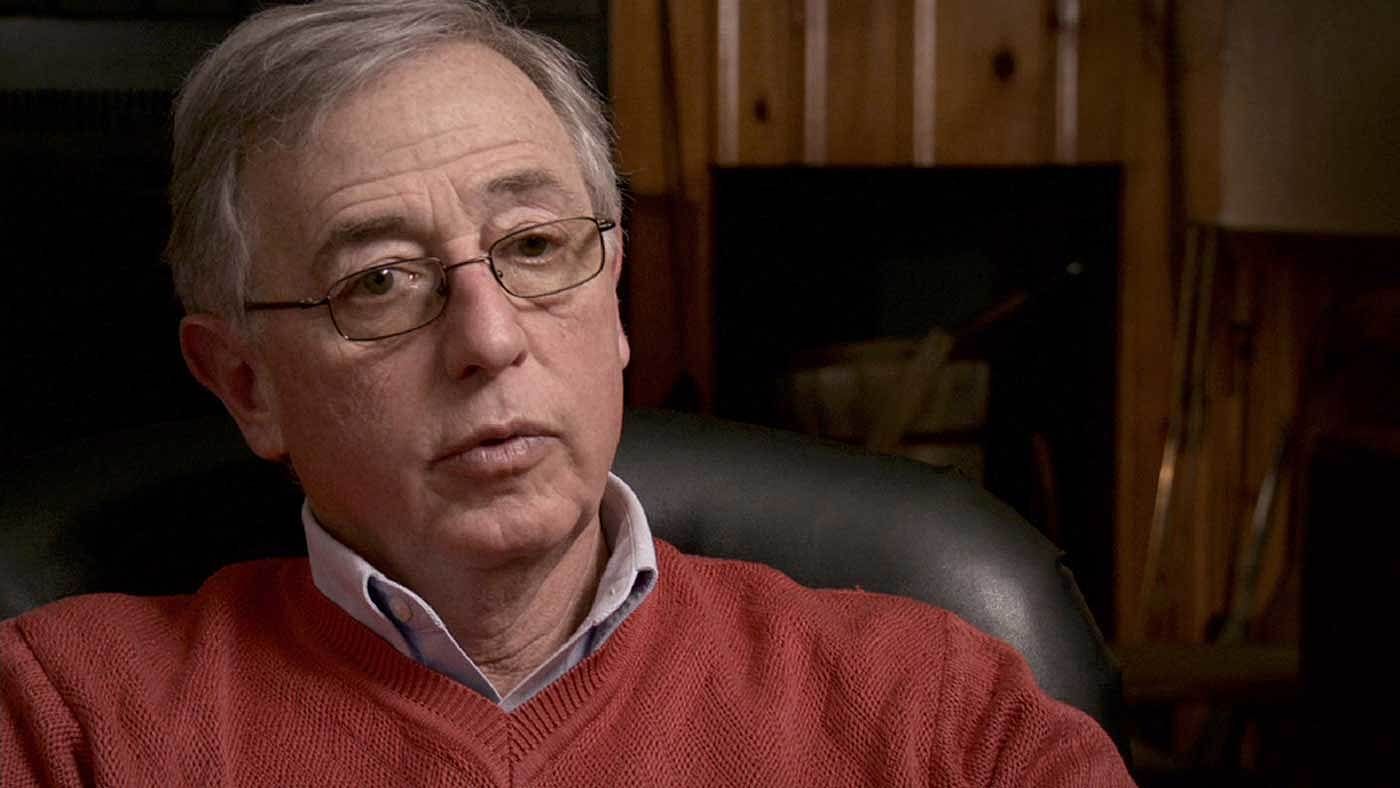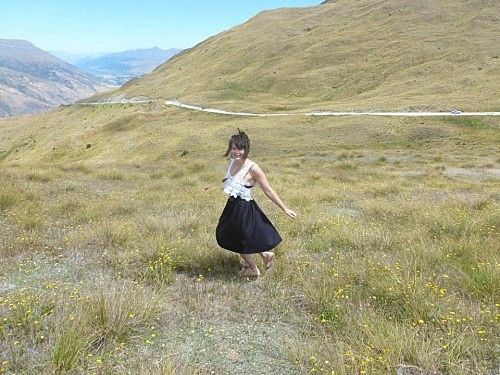Suffer Little Children: An Interview With "Kids For Cash" Director Robert May
"Kids For Cash" will make many viewers uncomfortable and angry, but as Di White discovers, this insight into the American juvenile detention system isn't about exposing villains - it's about showing what needs to be fixed.
Few people manage to make it through their teenage years without a few bumps and bruises. Be it petty vandalism on the abandoned corner dairy age 12, getting head-splittingly drunk off Vodka Cruisers age 14, or spluttering on a joint at the skate park age 16, many of us have flirted with the law. Most of us make it through relatively unscathed: a few concerned phone calls between parents – perhaps a stern warning from the school principal at worst. For what in most cases is nothing more than a brief lapse in judgment, or even a moment of plain stupidity, we never imagine that we could end up in front a judge. We never contemplate that we could receive a sentence, a permanent mark against our name and one that would carry real-world consequences. We never imagine ourselves winding up behind bars.
In 1995, Mark Ciavarella was appointed a Juvenile Court Judge in Luzerne County, Pennsylvania. He campaigned, as is done for judicial appointments in the US, on a “zero-tolerance” policy. “If a young person comes before me,” he promised, “I will give them the maximum sentence.”
Judge Ciavarella was true to his word: during his tenure of just over ten years, he incarcerated over 3,000 children. These were not stereotypical “problem kids”; they were children as young as 12 with no prior records being locked up for offences as minor as writing prank notes, making fake MySpace pages about their teachers, and getting into school-yard scraps. The sentences, in and of themselves, would in most parts of the world cause outrage and disbelief. But in post-Colombine US, where problem youths were seen as mass shootings waiting to happen, and where manifestly excessive sentences in other parts of the judicial system are common-place, the hard-line approach was not questioned.
That is, until, something far more sinister emerged. In January 2009, news broke that Judge Ciavarella had received $2.6 million from the owners of two privately-run, for-profit juvenile detention centres – the very same ones to which he had been sending young people. It smacked of bribery and corruption of the highest order: someone who had been afforded an almost god-like status by his community appeared to have been receiving direct kick-backs for putting young kids in prison.
Robert May, the director of Kids for Cash, is from Luzerne County himself. In 2009, May and a team of researchers began working on telling the story of both the young people who had come before Ciavellera and the story of the two judges at the heart of the scandal: Ciavellera and another Juvenile Court Judge, Michael Conahan. While on one level May was eager to explore the judicial scandal, it was the stories of these young people and the systemic issues rife across the wider juvenile justice system that May believed was “the biggest scandal of all”.
“What bothered me most was the complicity and complacency in the community; how was it that everyone seemed OK with all of this?” May reflects. “That is what really picked my curiosity.” He knew that if it was happening in Luzerne County, it would be happening elsewhere in the country. And he was right.
Like in New Zealand, and in most youth justice systems, juvenile court proceedings are held in private, meaning few people were privy to what was happening in Ciavarella’s courtroom. The first red flag that went up was not the excessive sentences, but the fact many of the young people appearing before Ciavellera were not legally represented. An organisation called the Juvenile Law Centre, based in Philidelphia, was contacted by a parent whose child had been sentenced without a lawyer. The Centre was soon inundated with other parents with similar stories. “I wanted to stand on the top of [a tall] building and scream, ‘Someone please look at what is going on here’,” says Marsh Levick, the founder of the Centre, in the documentary. Had it not been for the Kids for Cash scandal, May is convinced no one would have looked. “He’d still be a judge today,” he says. “I have no doubt in my mind: he would have still been a judge.”
It’s a point the documentary makes clear: there were two separate issues at play here, but only one was seen to be of sufficient gravity to warrant intervention. The fact young children were being sent off to what are all intents and purposes prisons, consigned to moving in and out of the penal system for years to come, was (and is) something happening across the country.
*
“Kids in general are not respected as being kids,” May explains. “People want to treat them as adults, but they’re not.” It’s somewhat intuitive, but there’s science to back up most people's innate sense that children are fundamentally different from adults. A child’s brain is not fully developed until the child hits their mid-20s. The part that develops last, the frontal lobe, is the part that controls reasoning, risk taking, rational thinking, and logic. In other words, there’s a reason and a rhyme to why young people and teenagers make irrational, risky and sometimes plain stupid decisions. Telling a child or young person the potential consequences of their actions is different from telling an adult the same, something that was clearly lost on Ciavellera.
At one point in the film, a girl who looks impossibly young recounts her sentencing before Judge Ciavellera. She had been sentenced for getting in a fight with a classmate at school who had been taunting her with names. With a look of pure terror, she describes being made to kneel down on the floor while her feet were shackled. It’s an experience that seems simply too adult to be coming from such a young face. “When we interviewed the kids initally, I thought they were all going to talk about the scandal that got them in there,” May says. “The first thing all of them talked about was the very moment the handcuffs and shackles were put on.”
*
For a documentary that could so easily play into the clear villain/victim dicotomy, the treatment of both judges is remarkably even-handed. It is made clear that Judge Ciavellera was never in fact convicted for receiving money in return for sending children to the juvenile centre. While he accepted that he received the $2.6 million, and while it was clear he took a draconian approach to sentencing, whether the two were linked was never in fact proven in court.
“When people say that, I take that as perhaps the biggest compliment for our team,” May says, when I remark on that fairness of the documentary. He is well-aware that Ciavellera was not some evil, monstrous figure. “We paint our villians as sub-human – where did they come from, another planet? We pretend they weren’t created by the same person that created all the rest of us – all the ‘good’ people. The fact is: that’s not true.”
Despite what Ciavellera did, May affords him a certain humanity. After being sentenced in August 2011 to a whopping 28 years for his actions in accepting and concealing the money, May again met with Ciavellera. They discuss Ciavellera’s own family and childhood. He decribes being caught by the the police as a teen when he and some friends were attempting to break into a car to go joy-riding. “My father knocked me out cold”, he recounts.
Ciavellera breaks down while talking about how his grandchild, aged two, will only know him from news clippings and trial footage. While Ciavellera still vehemently denies that he ever sentenced children in return for money, he accepts he made mistakes in receiving the cash. Like those he sentenced, he must pay the consequences for his offending. It’s a cruel irony, and one that could be the ultimate tale of just desserts. Instead, if there’s any message that comes out of the film it's that there's precious little justice in the US justice system.
As a New Zealander, it’s tempting to come away from Kids for Cash with a certain sense of smug righteousness. Their juvenile court system is a far cry from New Zealand’s youth justice system, which is recognised around the world as an effective and humane way of responding to youth offending – a model for other jurisdictions. However, there is always the risk of complacency. Writing in the Criminology and Criminal Justice journal in 2012, Victoria University youth justice expert Nessa Lynch has asked whether, in fact, New Zealand’s youth justice system is moving backwards, “aligning itself more with the punitive adult criminal justice system and [importing] punitive policies from abroad”. Indeed, if there is any lesson an international audience can take from Kids for Cash, it is the importance of constant vigilance and monitoring of how the state treats its children.
Kids for Cash has its final Auckland screening at Documentary Edge on Sunday June 1 at 6.30pm, then screens as part of the Wellington leg of the festival on Wednesday 11 June and Sunday 15 June. Tickets are available here.


